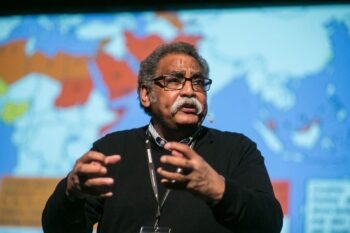The turning point for Kamal Fahmi came when he was asked to tell a Christian Yemeni teen to take the compulsory Islamic classes to avoid punishment. After all, many other Yemeni kids had slogged through the requirement.
But as Kamal stood before this young man in 2008, he was struck by a thunderbolt.
Why should he go through this? Why don’t they have the right to live as Christians? he wondered. “God touched my heart. He was a teenager. He was very smart. I realized there are 1.3 billion Muslims that don’t have the freedom to leave Islam. I understood we have to abolish the laws of apostasy and blasphemy laws.”
Yemen is hardly alone when it comes to suppressing the freedom of religion. Though it was normal for Christians to hunker down and endure the compulsory class, Kamal that day got a revelation. The kid didn’t want to study Islam. Where was freedom?
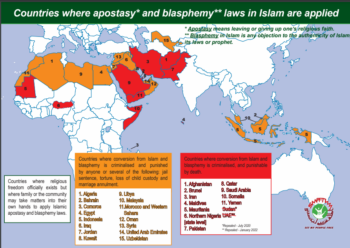
That’s how Kamal’s lifelong ministry was born. Today, the semi-retired 71-year-old is still tirelessly pushing the United Nations, the Arab League and individual nations to recognize and enforce Article 18 of the UN’s Universal Declaration of Human Rights:
Everyone has the right to freedom of thought, conscience and religion; this right includes freedom to change his religion or belief, and freedom, either alone or in community with others and in public or private, to manifest his religion or belief in teaching, practice, worship and observance.
He founded Set My People Free to pursue freedom of conscience for those in restricted Muslim nations.
“One of the gravest laws violating freedom of thought and conscience, is the anti-apostasy and anti-blasphemy laws regarding Islam in Yemen,” Fahmi says. “They have death sentences for these two laws and we would like this to be abolished.”
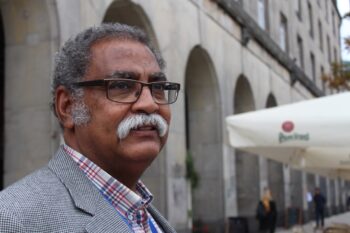 Around the world, 11 countries execute people under anti-apostasy and anti-blasphemy laws, and 15 nations punish those “crimes” with jail sentence, torture, loss of child custody and marriage annulment.
Around the world, 11 countries execute people under anti-apostasy and anti-blasphemy laws, and 15 nations punish those “crimes” with jail sentence, torture, loss of child custody and marriage annulment.
Sudan and United Arab Emirates recently abolished the death penalty. (Apostasy is leaving your religion. Blasphemy is speaking disrespectfully of a religion.)
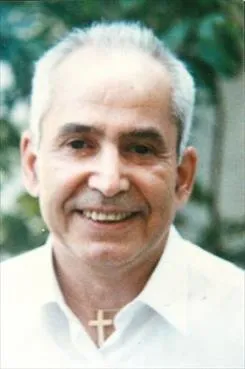
As an example, Mehdi Dibaj in Iran was born Muslim but accepted Jesus. In 1983, he was imprisoned for apostasy for 10 years, tortured, held for two years in a cell only one meter tall (he could not stand erect), sentenced to death. “I am not only willing to suffer for Christ. I am willing to die from Christ,” he said. Under international pressure, he was released but was later killed mysteriously. His body was found cut to pieces in a plastic bag, Kamal says.
Frequently, Christians fall prey to vigilantism. They get burned, beaten or suffer acid attacks. The blasphemy accusations are flimsy, sometimes fabricated as a vendetta or because of a grudge, and carried out without any police investigation. At the root of the problem is the notion – reinforced by state law – that blasphemy (which should be protected free speech) is wrong and should be punished severely.
Christians are not the only ones targeted. Bahai, atheists, and Hindus have also been targeted. Omar Mohammad, for example, was abducted and murdered for allegedly becoming an atheist in Yemen in 2016.
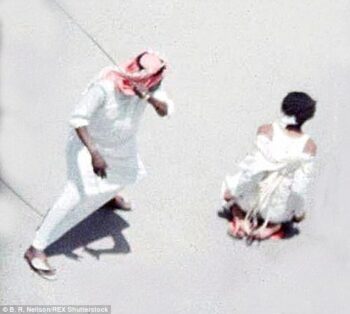
Kamal Fahmi got saved at age 19 in Sudan. He grew up in a Christian family but hadn’t made faith his own.
“I thought God did not exist,” he says. “I was wondering what is the meaning of life. I saw life ended in death. I was struggling. I thought, Life cannot just end by death. If I have money I’m going to die. If I’m married, I will die. It is easier to die now and end the whole story.
“There was something missing. I had this question and thought about the meaning of life.”
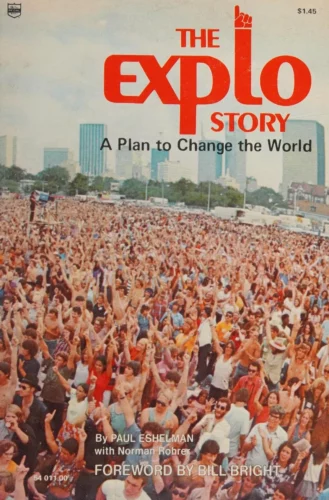
He had the chance to attend the Explo’72 Christian convention in Dallas at the height of the Jesus Movement. There, someone shared the “four spiritual laws” with Kamal, and he prayed a sinner’s prayer.
“In that camp I became a Christian because I realized God loved me,” Kamal says. “My life was changed completely. I felt an incredible peace. I realized my salvation was not through my works but by what Christ had done for me.
“My life was changed completely. I felt an incredible peace,” he adds. “I realized my salvation was not through my works but by what Christ had done for me.”
Six months later, he left his studies and went into ministry full time, evangelizing with the international Logos ship. With 140 other youth, they did outreach in India, Persian Gulf countries, the Philippines, Thailand and Saigon (months before its fall).
He joined Operation Mobilization in 1976 and ministered in Afghanistan, Mauritania, Libya, Bahrain, Morocco, Ankara, Pakistan, Iran and Saudi Arabia, helping establish underground churches and pastors.

Eventually, he was named Middle East coordinator for OM. He met and married a Swedish woman in 1986. For nine years they were based in Jordan, then in Egypt for 10 years. It was on a trip to Yemen that he got the revelation that he was destined to fight against apostasy and blasphemy laws on the international stage. Since 2017, he has lived in Sweden.
“The job we are doing is an impossible job,” Kamal says. “We just have to speak out the truth. We ask for justice. We were really influenced by Martin Luther King Jr. and all he did to end segregation, his nonviolence. And Wilberforce, what he did to end slave trade.
“As Christians we have the obligation to speak against injustice.” he adds. “Apostasy and blasphemy laws are a violation of basic human rights. We felt God loves justice. As Christians we need to protect freedom of expression. We need to speak out against the things that are not right.”
If you want to know more about a personal relationship with God, go here
Related content: Church in Saudi Arabia grows despite persecution, church of North Korea set to outpace South Korea, Islamists destroy churches in Europe, Bro. Rachid‘s persecution in Morocco.
About this writer: Michael Ashcraft pastors a church in the San Fernando Valley of Los Angeles

